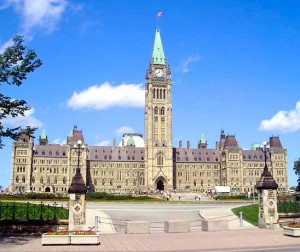A recent report by the Canadian Border Services Agency (CBSA) estimates that each refugee claimant who has their application rejected by the Canadian Immigration and Refugee Board (IRB), due either to lack of evidence of persecution in their home country or failing to show up to refugee hearings, costs the Canadian government over $50,000.
The country that produces the highest number of refugee claimants in Canada is Hungary, where 4,442 of the people who applied for refugee status in Canada last year hail from.
Virtually all applicants from Hungary had their refugee claim rejected, but before their cases were processed and they were deported, the cost of the welfare and health care provided to them by the Canadian government could have amounted to over $222 million last year alone according to the report, based on the $50,000 cost per failed claimant estimate.
Not only do provincial governments pay claimants welfare while they are in Canada, but also sometimes for up to seven months after they have left the country due to insufficient information sharing between the CBSA, Citizenship and Immigration Canada (CIC) and provincial social services authorities, according to the report.
Most of the claimants from Hungary are Romani, a stateless ethnic minority who reside primarily in Europe and who are sometimes referred to as gypsies -though this term is considered derogotary by many Roma organizations.
The Canadian government has said that 40 percent of Hungarian Roma who claim refugee status are from a town called Miskolc, where a large-scale organized effort to send people to Canada to claim refugee status is centered in.
The federal government has taken steps to reduce bogus refugee claims and the costs they impose on federal and provincial governments in Canada with the passing of Bill C-31 in June.
The legislation gave the Department of Citizenship and Immigration the discretion to create a list of ‘safe’ democratic countries with a reputation of respecting human rights, and the authority to reject refugee claims by individuals from those countries and deport the claimants within 45 days, rather than the typical 1,000 days that refugee claims take to process.
This would enable Canada to place Hungary on the safe list and reduce the processing time of refugee claims from that country.
The bill also eliminated free pharmaceutical, vision and dental care for refugee claimants, which CIC argued was fair given those services are not available to Canadian citizens through Medicare.


